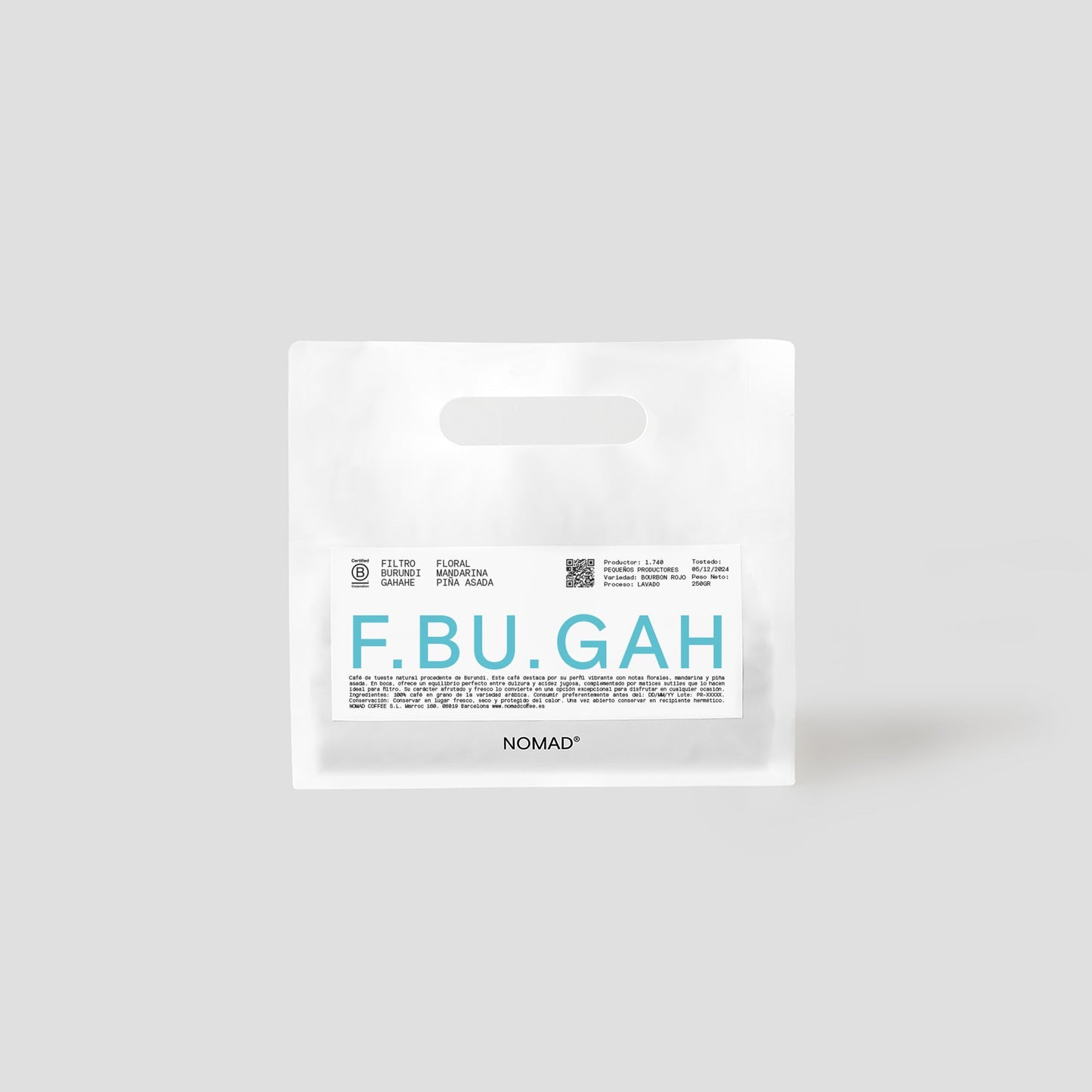NOMAD COFFEE
NOMAD - Gahahe Filter | Burundi - Washed - Red Bourbon
NOMAD - Gahahe Filter | Burundi - Washed - Red Bourbon
 Origin: Burundi
Origin: Burundi
 Tasting Notes: Floral, Tangerine, Grilled Pineapple
Tasting Notes: Floral, Tangerine, Grilled Pineapple
 Process: Washed
Process: Washed
 Varieties: Red Bourbon
Varieties: Red Bourbon
 Elevation: 1800 masl
Elevation: 1800 masl
 Harvest: March - July 2023
Harvest: March - July 2023
 Recommended Brew: Filter
Recommended Brew: Filter
 Roast Date:
Roast Date:
Couldn't load pickup availability
NOMAD Coffee Roasters is located in Barcelona, Spain
From NOMAD
This coffee stands out for its vibrant profile with floral notes, Tangerine and roasted pineapple. In the mouth, it offers a perfect balance between sweetness and juicy acidity, complemented by subtle nuances that make it ideal for filter. Its fruity and fresh character makes it an exceptional choice for any occasion.
The Washed Gahahe station, located in the Kayanza region, is a reference in Burundi and a flagship at NOMAD COFFEE, this being the 8th consecutive year that we have purchased coffee from this station. Located at an altitude of 1,805 meters above sea level, it is equipped with 10 fermentation tanks, 4 cherry selection tables and 180 drying beds, with the capacity to process up to 750 tons of cherries annually.
Gahahe is an example of sustainability and community support in Burundi. It is part of projects such as Farmer Hub, which strengthen local cooperatives and improve yields, also promoting livestock breeding to diversify farmers' incomes. In addition, farmers have access to organic fertilizers made from composted coffee pulp, encouraging responsible agricultural practices.
A key challenge in the region is the aging of coffee trees, many of which are over 50 years old. To combat this problem, Bugestal, in collaboration with the Institut des Sciences Agronomiques du Burundi (ISABU), offers low-cost seeds and seedlings to encourage plantation renewal.
Process
Coffee quality begins with the selective harvesting of ripe cherries. These undergo a flotation process to separate the lower quality cherries, followed by a manual inspection. They are then pulped within 6 hours of delivery.
The coffee is dry fermented for up to 12 hours and then soaked in clean mountain water for 12 to 24 hours. Finally, the parchment is dried on raised beds for 2 to 3 weeks, stirring regularly to ensure uniform drying and to remove any defective beans.
Share



